Ford Transit Connect vs Renault Kangoo Compact Van – Which one offers the better deal?
Two cars, one duel: Ford Transit Connect meets Renault Kangoo Compact Van.
Which one wins in performance, efficiency and value for money? Find out now!
Costs and Efficiency: Price and efficiency are key factors when choosing a car – and this is often where the real differences emerge.
Renault Kangoo Compact Van has a to a small extent advantage in terms of price – it starts at 22400 £, while the Ford Transit Connect costs 26700 £. That’s a price difference of around 4284 £.
Fuel consumption also shows a difference: Ford Transit Connect manages with 0.50 L and is therefore decisively more efficient than the Renault Kangoo Compact Van with 5.10 L. The difference is about 4.60 L per 100 km.
As for range, the Renault Kangoo Compact Van performs significantly better – achieving up to 290 km, about 172 km more than the Ford Transit Connect.
Engine and Performance: Power, torque and acceleration are the classic benchmarks for car enthusiasts – and here, some clear differences start to show.
When it comes to engine power, the Ford Transit Connect has a to a small extent edge – offering 150 HP compared to 122 HP. That’s roughly 28 HP more horsepower.
In acceleration from 0 to 100 km/h, the Ford Transit Connect is slight quicker – completing the sprint in 11.40 s, while the Renault Kangoo Compact Van takes 11.60 s. That’s about 0.20 s faster.
In terms of top speed, the Ford Transit Connect performs minimal better – reaching 186 km/h, while the Renault Kangoo Compact Van tops out at 176 km/h. The difference is around 10 km/h.
There’s also a difference in torque: Ford Transit Connect pulls distinct stronger with 350 Nm compared to 270 Nm. That’s about 80 Nm difference.
Space and Everyday Use: Whether family car or daily driver – which one offers more room, flexibility and comfort?
Both vehicles offer seating for 5 people.
In curb weight, Ford Transit Connect is hardly perceptible lighter – 1477 kg compared to 1493 kg. The difference is around 16 kg.
In maximum load capacity, the Renault Kangoo Compact Van performs distinct better – up to 4900 L, which is about 1200 L more than the Ford Transit Connect.
When it comes to payload, Renault Kangoo Compact Van to a small extent takes the win – 901 kg compared to 792 kg. That’s a difference of about 109 kg.
Who comes out on top?
Overall, the Ford Transit Connect shows itself to be outperforms in nearly all aspects and secures the title of DriveDuel Champion.
It convinces with the more balanced overall package and proves to be the more versatile choice for everyday use.

Ford Transit Connect
Ford Transit Connect
The Ford Transit Connect is a versatile compact van that seamlessly combines functionality with a comfortable driving experience. Its spacious interior is designed to accommodate both passengers and cargo, making it an ideal choice for small businesses and active families alike. With its efficient engine and agile handling, the Transit Connect offers a reliable and economical option for urban and suburban driving.
details @ media.ford.com
@ media.ford.com
 @ media.ford.com
@ media.ford.com
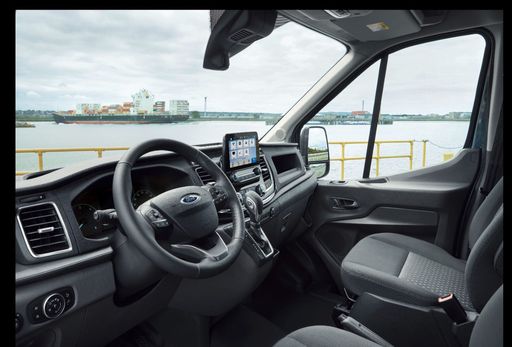 @ media.ford.com
@ media.ford.com
Renault Kangoo Compact Van
The Renault Kangoo is a versatile small van that seamlessly blends practicality with modern design. It offers a spacious interior, making it ideal for transporting goods or passengers while maintaining a compact exterior for easy manoeuvrability in urban settings. Equipped with efficient engines, the Kangoo balances performance with economy, catering to the diverse needs of businesses and individual users alike.
details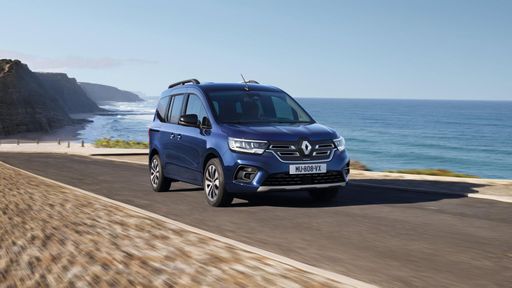 @ Renault
@ Renault
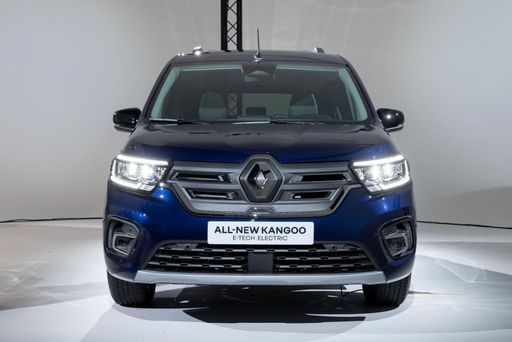 @ Renault
@ Renault
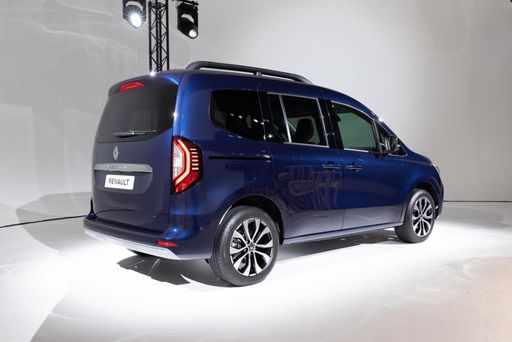 @ Renault
@ Renault
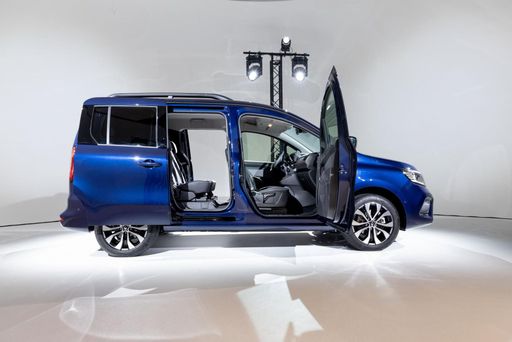 @ Renault
@ Renault
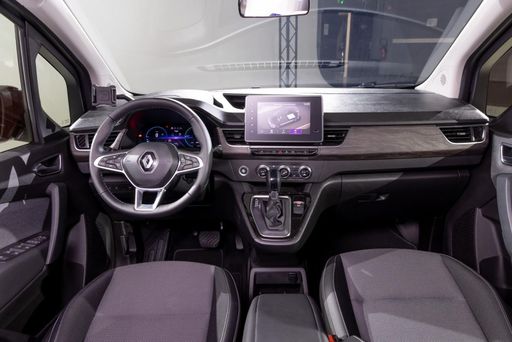 @ Renault
@ Renault
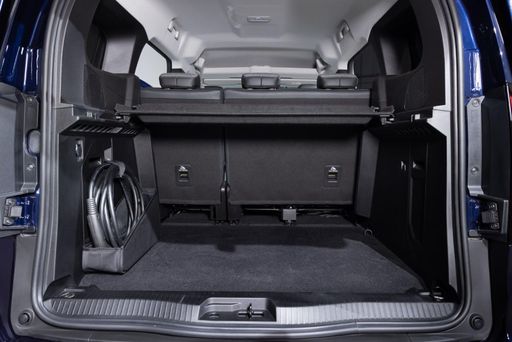 @ Renault
@ Renault

|

|
|
|
|
Costs and Consumption |
|
|---|---|
|
Price
26700 - 41500 £
|
Price
22400 - 37000 £
|
|
Consumption L/100km
0.5 - 5.8 L
|
Consumption L/100km
5.1 - 5.5 L
|
|
Consumption kWh/100km
-
|
Consumption kWh/100km
18.7 - 21.1 kWh
|
|
Electric Range
118 km
|
Electric Range
261 - 290 km
|
|
Battery Capacity
19.70 kWh
|
Battery Capacity
-
|
|
co2
11 - 153 g/km
|
co2
0 - 151 g/km
|
|
Fuel tank capacity
32 - 50 L
|
Fuel tank capacity
54 L
|
Dimensions and Body |
|
|---|---|
|
Body Type
Cargo Van
|
Body Type
Cargo Van
|
|
Seats
2 - 5
|
Seats
2 - 5
|
|
Doors
4
|
Doors
4 - 5
|
|
Curb weight
1477 - 1866 kg
|
Curb weight
1493 - 1910 kg
|
|
Trunk capacity
-
|
Trunk capacity
-
|
|
Length
4500 - 4868 mm
|
Length
4486 - 4910 mm
|
|
Width
1855 mm
|
Width
1860 mm
|
|
Height
1856 - 1860 mm
|
Height
1854 - 1864 mm
|
|
Max trunk capacity
2500 - 3700 L
|
Max trunk capacity
3000 - 4900 L
|
|
Payload
602 - 792 kg
|
Payload
498 - 901 kg
|
Engine and Performance |
|
|---|---|
|
Engine Type
Diesel, Plugin Hybrid
|
Engine Type
Diesel, Electric
|
|
Transmission
Manuel, Automatic
|
Transmission
Manuel, Automatic
|
|
Transmission Detail
Manual Gearbox, Dual-Clutch Automatic
|
Transmission Detail
Manual Gearbox, Dual-Clutch Automatic, Reduction Gearbox
|
|
Drive Type
Front-Wheel Drive, All-Wheel Drive
|
Drive Type
Front-Wheel Drive
|
|
Power HP
102 - 150 HP
|
Power HP
75 - 122 HP
|
|
Acceleration 0-100km/h
11.4 - 13.5 s
|
Acceleration 0-100km/h
11.6 - 18.9 s
|
|
Max Speed
175 - 186 km/h
|
Max Speed
132 - 176 km/h
|
|
Torque
280 - 350 Nm
|
Torque
230 - 270 Nm
|
|
Number of Cylinders
4
|
Number of Cylinders
4
|
|
Power kW
75 - 110 kW
|
Power kW
55 - 90 kW
|
|
Engine capacity
1498 - 1968 cm3
|
Engine capacity
1461 cm3
|
General |
|
|---|---|
|
Model Year
2024 - 2025
|
Model Year
2022 - 2024
|
|
CO2 Efficiency Class
E, B
|
CO2 Efficiency Class
D, E, A
|
|
Brand
Ford
|
Brand
Renault
|
What drive types are available for the Ford Transit Connect?
The Ford Transit Connect is available as Front-Wheel Drive or All-Wheel Drive.
The prices and data displayed are estimates based on German list prices and may vary by country. This information is not legally binding.
